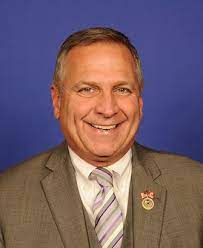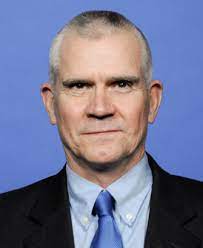WASHINGTON, DC — VA officials believe that the overturning of Roe v. Wade in June and the subsequent enforcement of abortion bans in several states creates a clear danger to the health of women veterans. Consequently, VA released a new rule, taking effect on Sept. 9, that allows department clinicians to provide abortions and abortion counseling when the life of the mother is at risk and in cases of rape and incest.
VA officials recently defended that decision at a legislative hearing.
The 1980 Hyde Amendment restricts federal funding for abortions, and a 1992 law prohibits VA from providing abortion services. However, the Veterans Health Care Eligibility Reform Act of 1996 gives the VA secretary the power to allow VA hospitals to furnish additional needed medical care.
According to VA officials, the state abortion bans are creating just such a need, putting the health of veterans at risk, and they believe that the 1996 law supersedes the 1992 one, as well as the Hyde Amendment.
“In many of these states, the baseline availability of reproductive healthcare services is much lower than it is in other parts of the country, even before the [repeal of Roe v. Wade],” VA Undersecretary for Health Shereef Elnahal, MD, told the House VA Committee last month. “[When it came to abortion services] we have had to send women veterans for lifesaving care to community facilities, ask them to do these services to save veterans lives and then come around and say, ‘We can’t pay you for these services.’ Given that the baseline for these services was variable across the country … we could not contend with the safety environment after the Dobbs decision in terms of the restrictions to these services state-by-state. We feel that this is needed care. And as a general matter, if these veterans are under our care, and we know we can save their lives, we need to do it.”
Elnahal admitted that VA has a lot of work ahead of it, preparing facilities to add services that they had heretofore been banned from providing. Prior to the interim rule, VA practitioners were essentially under a gag order, unable to even discuss the possibility of abortion with a patient.
As of the hearing, there was no firm timeline in place, but Elnahal said that VA was working swiftly on an implementation plan.
“We believe medication abortion will be the first available and most common abortion provided, so we are working to make sure providers have access to training as well as to medications,” Elnahal said. “We must also survey the ability to have pelvic ultrasound to assess early pregnancy. Ensuring staffing and necessary equipment is critical to providing these services. In cases where a [VA site] is not ready to provide needed care, veterans will need to travel to community [providers] or other VA sites.”
However, VA’s work might also include a number of legal battles, as well as opposition from Republican members of Congress.
“Congress did prohibit VA from providing abortion services in 1992. That prohibition has never been repealed. Even though some comments have been made that you’re using another twist on a different section of the law to get there,” declared Rep. Mike Bost (R-IL.). “Where I come from, we try to follow the law. It disturbs me that one of your first acts as undersecretary of health is to disobey the law so blatantly.”
His feelings were echoed even more strongly by Rep. Matt Rosendale (R-MT) who said, “The Veterans Administration and a bunch of unelected bureaucrats who don’t have to answer to the voters of this country have passed a rule, and I am sure all the people in this room know the difference between a rule and a law. … Quite frankly, I look forward to it being overturned by the courts, and I plan on doing whatever I can to support that effort.”
Elnahal seemed prepared for this kind of reception, telling Bost, “I understand you’ve taken this position around our authority. We respectfully disagree with that. VA counsel has had a consultation with the Department of Justice.”
According to estimates from the RAND Corp., approximately 260,000 women veterans of reproductive age currently live in states with significant abortion restrictions. Of those, roughly 96,200 are enrolled in VA healthcare.
Elnahal told the committee that he expects VA to provide approximately 1,000 abortions the first year, though that could grow over time, since women are the fastest-growing demographic in the military.
He also noted that this rule change could help improve VA’s relationship with women veterans as a whole.
“Part of the reason we lag with women veterans in terms of trust are these previous restrictions around discussing the full scope of reproductive healthcare, as well as the services that follow that,” he said.



